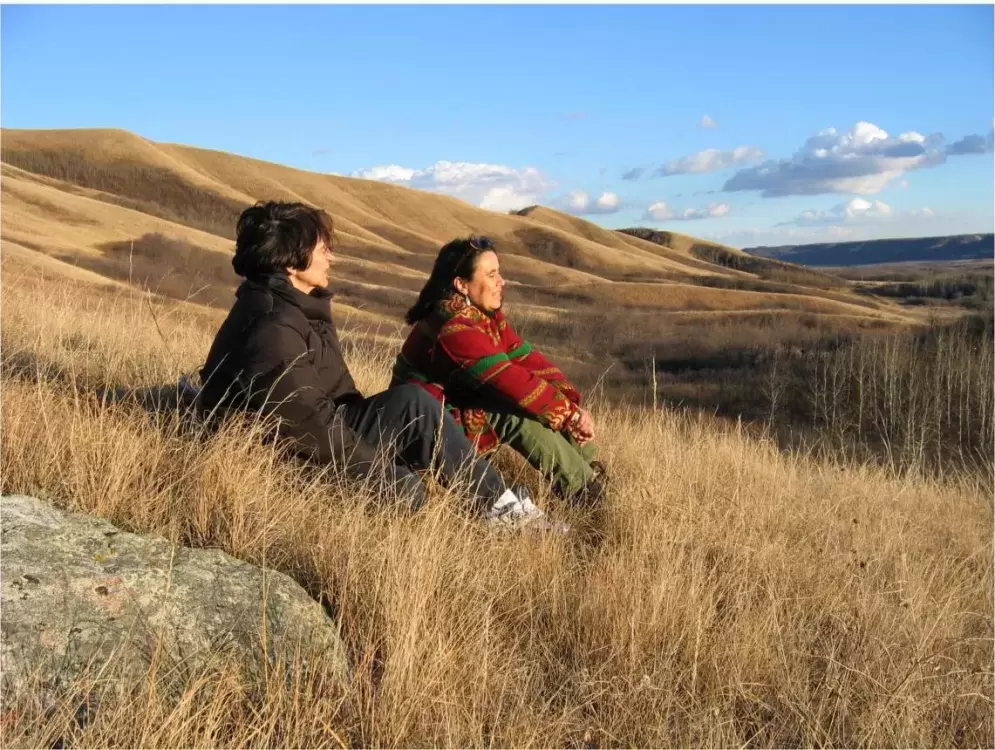The National Film of Board of Canada is bringing something special to the table for Indigenous people this year. The NFB has launched a tour called Aabiziingwashi - “Wide Awake” in Anishinaabe - which will see more than 250 films from First Nations, Metis, and Inuit filmmakers become available for viewing across the country. The purpose is to allow the free flow of information between people, promote all the NFB has to offer, and support works specific to the Indigenous community.
“The idea started about eight-months-ago and it came out of reading the report and recommendations from the Truth and Reconciliation Commission, and thinking about how different things would apply in a National Film Board context… the National Film Board being a public producer and a national memory,” said Michelle Van Beusekom, executive director of English language programming and production with NFB.
“We’ve produced a lot of films by First Nations, Metis and Inuit directors, starting in 1969, and we have a really incredible, and precious collection of 280 films,” she said.
The films are offered to virtually anyone, and they are free of charge - unless the borrower is charging movie-goers, then a rental fee applies. The NFB portion of the deal is that they will send a copy of the requested film in digital format (either an online link or a DVD in the mail), and will also send a press kit to the borrower. The press kit contains a description of the film and background information on it, as well as a biography of the filmmaker. They even include a printable poster file, and a shareable Facebook link, so the borrower can advertise the film to their community before the official screening date.
It’s up to the borrower to find the venue used for the screening, however, but the NFB can help with suggestions on how to go about this, as well as help with marketing tips, if need be, said Van Beusekom.
“We have a website set up, and it’s ‘the NFB Wide Awake Tour.’ There’s information there - an FAQ, on how people can host a screening. There’s a bit of work involved,” she added. “But if people can find a place to host, they can get in touch with our community outreach folks who can help them put together a customized program.”
There are a few specific films that have been really popular over the years, which the NFB promotes to interested parties. And there are five films which were made right here in B.C.
Laxwesa Wa (Strength of the River) was directed by Barb Cranmer of Alert Bay, B.C. in 1995. In the film, she looks at the fishing traditions of coastal First Nations, and the issues they are facing now in the post-colonial era. Quatuwas (People Gathering Together) was also directed by Cranmer, in 1997. In this film, Cranmer examines the historical significance of canoes within coastal cultures, including a reclamation and revival of this heritage. The third film on the list, also by Cranmer, is T’Lina: The Rendering of Wealth, released in 1999. T’Lina is an oil that comes from the eulachon fish. It’s been essential in the culture of the Kwakwaka'wakw Nation of B.C. for centuries. But in recent years, the population of eulachon has been drastically reduced, and Cranmer explores what this means for the Kwakwaka'wakw people.
Three more films from B.C. are: Totem: Return and Renewal, by Gil Cardinal in 2007, which follows the return of the G¿psgolox Pole to the Haisla people, from a museum in Sweden; The Story of the Coast Salish Knitters, by Christine Welsh in 2000, which highlights the making of the famous Cowichan sweaters and the Coast Salish women who produce them; And Finding Dawn, also by Christine Welsh, in 2006, which is an up-close look at the tragedy—as well as the more hopeful aspects--of Canada’s Missing and Murdered Indigenous Women.
So far, the closest film screenings to Port Alberni are Port Hardy and Port McNeil, running through September, October, November, and December. The films showing here are: The Angry Inuk, Birth of a Family, We Can’t Make the Same Mistake Twice, and The Road Forward. The exact move times and dates can be found on the NFB website. But there is always the option of requesting to host a screening for any other interested communities. And there is something for everyone, said Van Beusekom.
“This is a great opportunity to shine a light on this collection and offer it to people in a structured way. People could use them as a starting point for dialogue and discussion in changing some of the ways people think about this country, and the way people think about the settler-colonial relationship,” she said.
“There are a number of family films, and animated films, and documentaries. There’s just a real treasure trove,” said Van Beusekom.
For more information go to: http://wideawake.nfb.ca/







